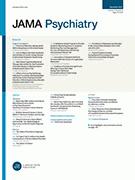Menopausa Precoce: aumenta il rischio di sviluppare la depressione?

05/02/2016
Andare in menopausa precocemente espone a un aumento del rischio di sviluppare una depressione.
E’ quello che è emerso da una meta-analisi pubblicata sulla rivista scientifica Jama Psychiatry.
Secondo i ricercatori le donne che vanno in menopausa precoce rischiano di più perché sono esposte agli estrogeni endogeni per un periodo di tempo minore.
La meta-analisi ha incluso 14 studi ed è stata condotta su 67.714 donne, non sono stati inclusi gli studi su donne con menopausa precoce indotta chirurgicamente
Più è lunga l’esposizione a estrogeni endogeni, quindi, minore sarà il rischio di depressione in età avanzata.
Identificare le donne ad alto rischio di depressione a causa della menopausa precoce, che potrebbero beneficiare di trattamento psichiatrico o di terapie a base di estrogeni, potrebbe essere utile in ambito clinico.
******

Abstract in inglese dell’articolo pubblicato sulla rivista scientifica Jama Psychiatry
Original Investigation | February 2016 Meta-analysis
Association of Age at Menopause and Duration of Reproductive Period With Depression After Menopause: A Systematic Review and Meta-analysis
Marios K. Georgakis, MD1; Thomas P. Thomopoulos, MD1; Andreas-Antonios Diamantaras, MD1,2; Eleni I. Kalogirou, MD1; Alkistis Skalkidou, MD, PhD3; Stella S. Daskalopoulou, MD, MSc, DIC, PhD4; Eleni Th Petridou, MD, MPH, PhD1
1Department of Hygiene, Epidemiology and Medical Statistics, School of Medicine, National and Kapodistrian University of Athens, Athens, Greece
2Program Medical Neurosciences, Charité-Universitätsmedizin, Berlin, Germany
3Department of Women’s and Children’s Health, Uppsala University, Uppsala, Sweden
4Division of Internal Medicine, Department of Medicine, Faculty of Medicine, McGill University, Montreal, Quebec, Canada
JAMA Psychiatry. 2016;73(2):139-149. doi:10.1001/jamapsychiatry.2015.2653.
Importance Estrogens have neuroprotective and antidepressive effects; however, associations between indices of reduced endogenous estrogens and risk for postmenopausal depression have not been systematically explored.
Objective To investigate the association of age at menopause and the duration of the reproductive period with the risk for depression among postmenopausal women with naturally occurring menopause.
Data Sources A search strategy for use of MEDLINE was developed (through January 1, 2015) using the key terms menopause, climacteric, reproductive period, depression, and mood disorders. References of included studies and reviews were also screened; authors were contacted to maximize synthesized evidence.
Study Selection A total of 12 323 articles, without language restriction, were screened by pairs of reviewers to identify observational studies related to the study hypothesis; 14 studies were eligible for meta-analysis.
Data Extraction and Synthesis Pairs of reviewers independently extracted information on study design and type of analysis by participants’ characteristics and methods of depression ascertainment. Study quality was assessed using the Newcastle-Ottawa Scale, and fixed- or random-effects models were implemented.
Main Outcomes and Measures Pooled-effect estimates for depression, defined by psychiatric evaluation or validated instruments, by age at menopause and duration of the reproductive period.
Results The 14 studies included in the meta-analysis represented 67 714 women. An inverse association (reported as odds ratio [OR]; 95% CI of 2-year increments) with depression in postmenopausal women was shown for increasing age at menopause (0.98; 0.96-0.99 [67 434 unique participants; 13 studies]) and duration of the reproductive period (0.98; 0.96-0.99 [54 715 unique participants; 5 studies]). Menopause at age 40 or more years compared with premature menopause was associated with a 50% decreased risk for depression (3033 unique participants; 4 studies). Pooling of studies examining severe depression showed a 5% decrease in risk of severe depression with increasing (2-year increment) age at menopause (52 736 unique participants; 3 studies); sensitivity analysis of studies controlling for past depression revealed similar results for age at menopause (0.98; 0.96-1.00 [48 894 unique participants; 3 studies). No heterogeneity or publication bias was evident in the main analyses.
Conclusions and Relevance Longer exposure to endogenous estrogens, expressed as older age at menopause and longer reproductive period, is associated with a lower risk of depression in later life. Identifying women at higher risk for depression due to early menopause who could benefit from psychiatric intervention or estrogen-based therapies could be useful in the clinical setting.
